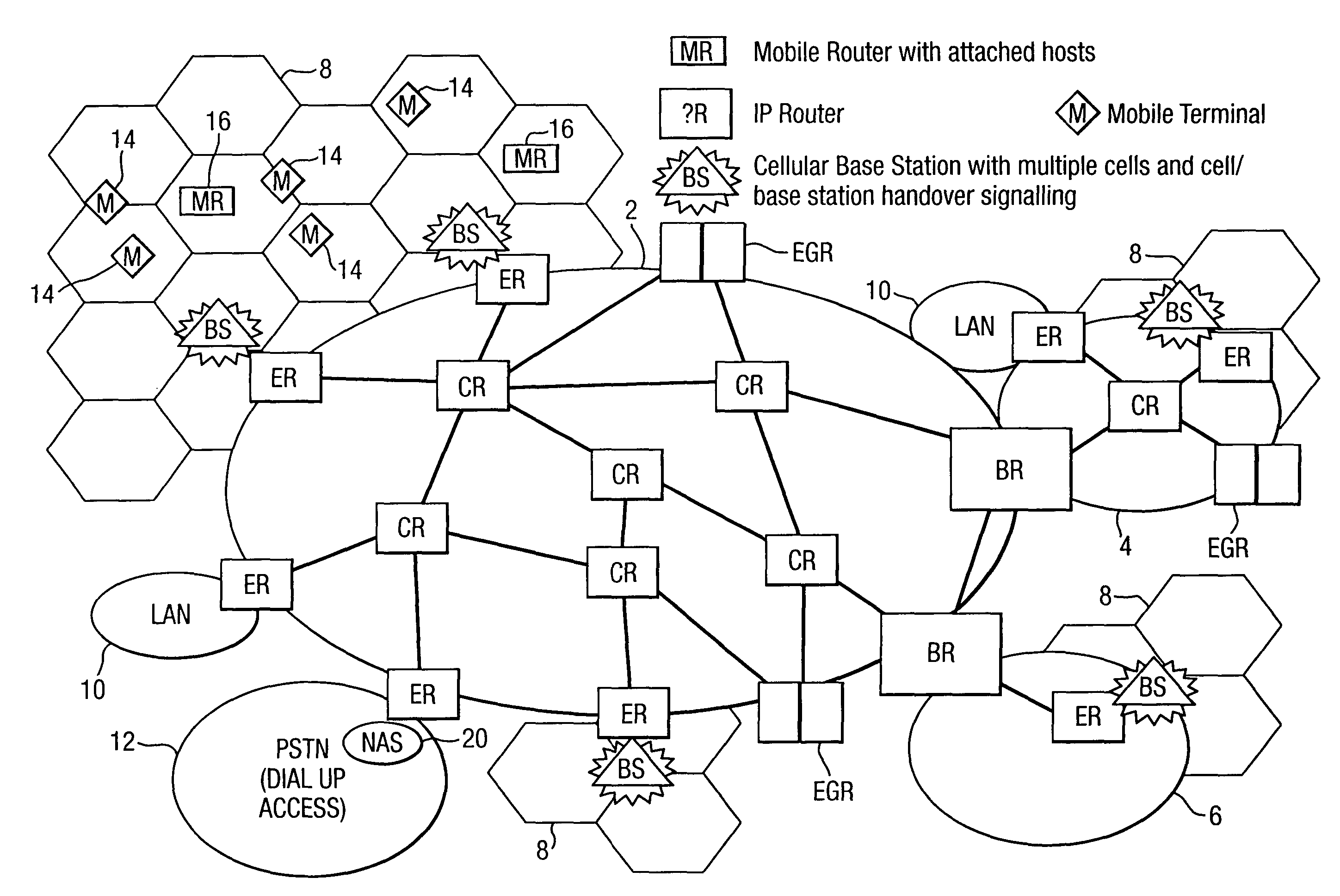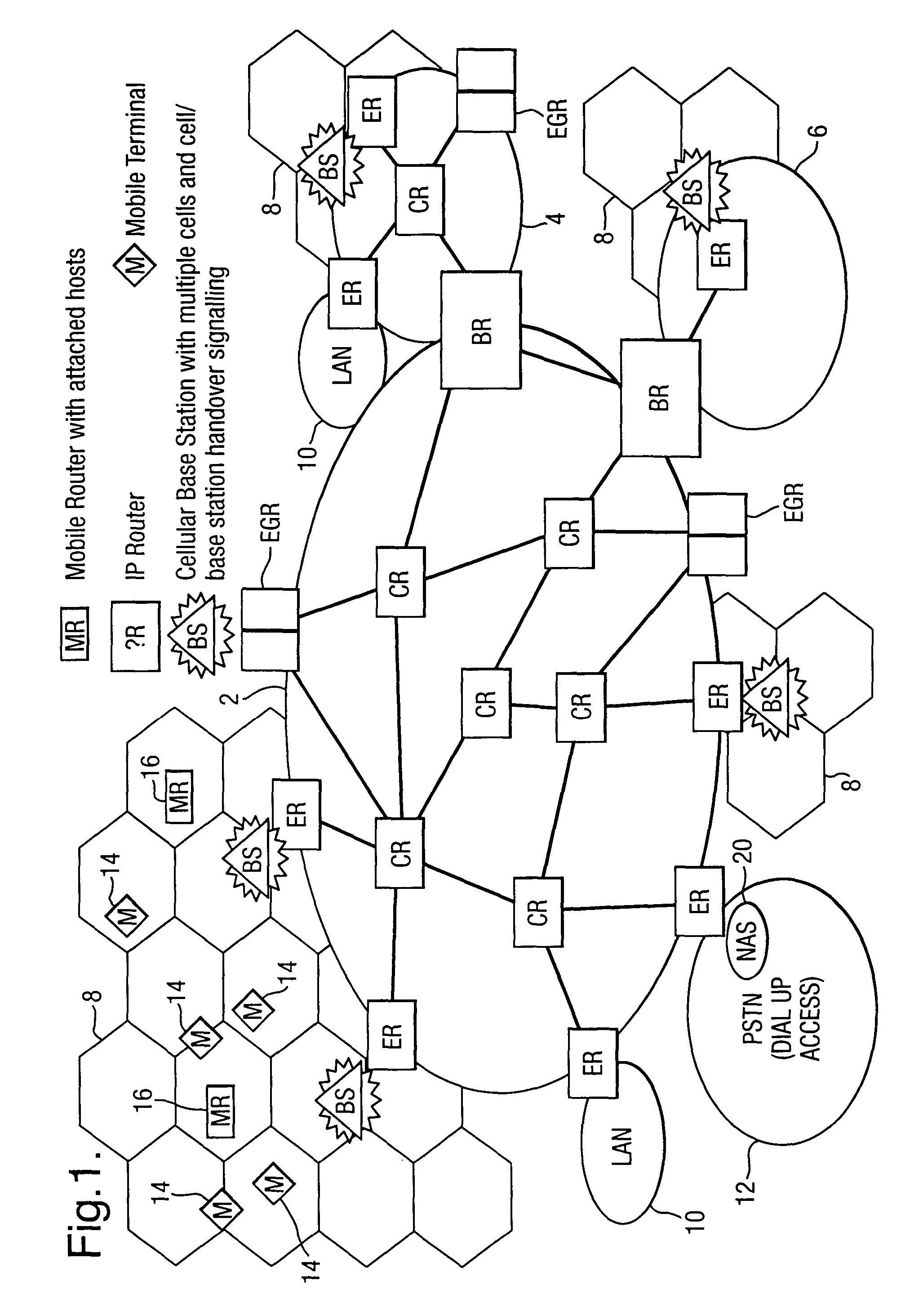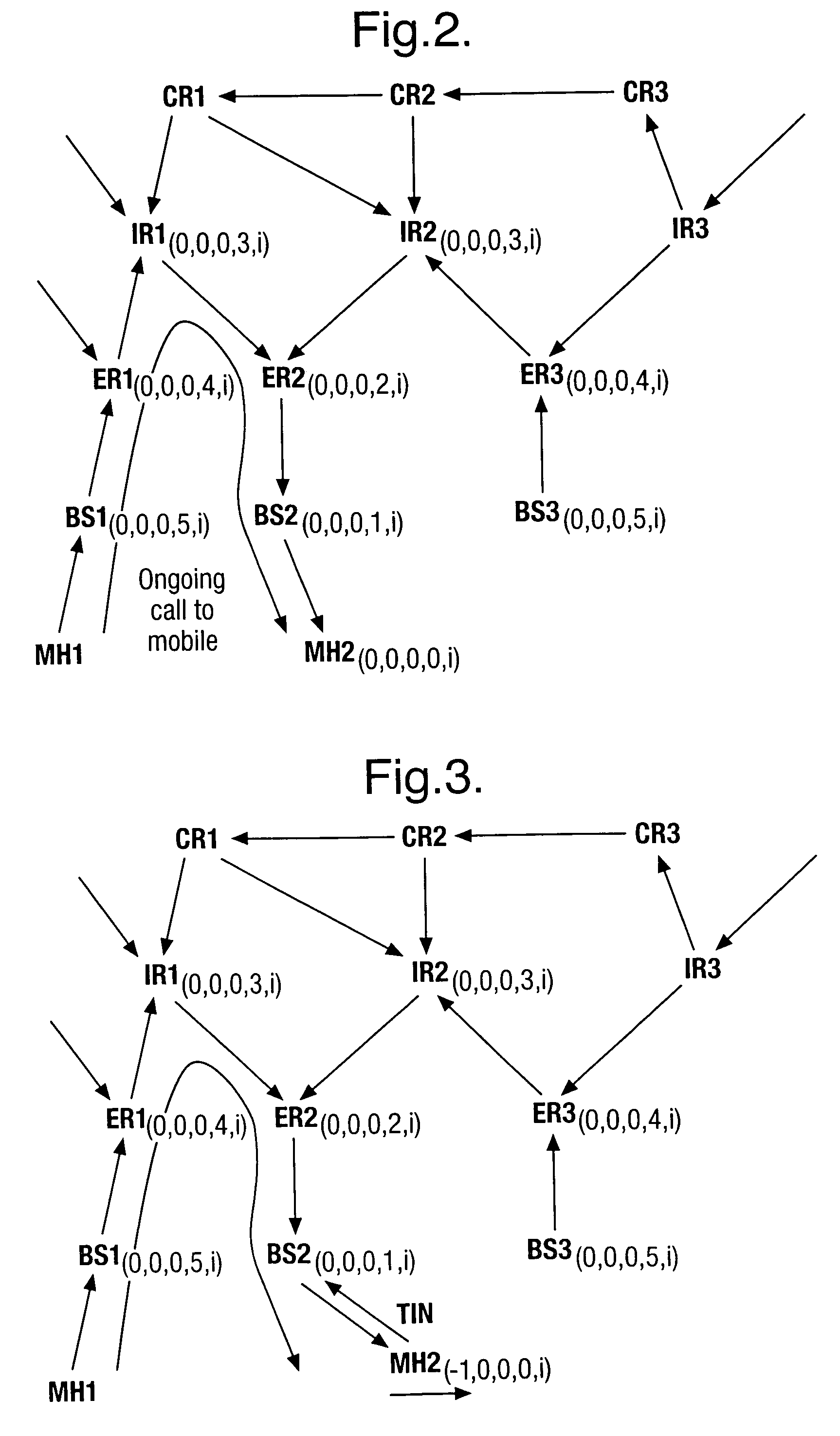Telecommunication routing using multiple routing protocols in a single domain
a routing protocol and telecommunication technology, applied in the field of telecommunications signal routing, can solve the problems of address exhaustion (the inability to re-use an address), additional cost of mobility, and cost of tunnelling, and achieve the effect of improving routing efficiency in the infrastructur
- Summary
- Abstract
- Description
- Claims
- Application Information
AI Technical Summary
Benefits of technology
Problems solved by technology
Method used
Image
Examples
Embodiment Construction
[0035]Referring now to FIG. 1, an example of a fixed / mobile topology in accordance with an embodiment of the present invention is shown. The topology includes, by way of example, three packet switching networks 2, 4, 6 forming an Autonomous System (AS), the extent of which is schematically indicated by dark shading in FIG. 1. One definition given for the term Autonomous System, is “a set of routers and networks under the same administration” (“Routing in the Internet”, Christian Huitema, Prentice-Hall, 1995, page 158). Herein, the term Autonomous System, also referred to as a routing domain in the art, is also intended to mean a network, or a set of networks, having routers running the same routing protocol. An Autonomous System may be connected to other Autonomous Systems forming a global internetwork such as the Internet (used by way of example hereinafter). The routing protocol is an interior gateway protocol, and communications with other Autonomous Systems are achieved via exte...
PUM
 Login to View More
Login to View More Abstract
Description
Claims
Application Information
 Login to View More
Login to View More - R&D
- Intellectual Property
- Life Sciences
- Materials
- Tech Scout
- Unparalleled Data Quality
- Higher Quality Content
- 60% Fewer Hallucinations
Browse by: Latest US Patents, China's latest patents, Technical Efficacy Thesaurus, Application Domain, Technology Topic, Popular Technical Reports.
© 2025 PatSnap. All rights reserved.Legal|Privacy policy|Modern Slavery Act Transparency Statement|Sitemap|About US| Contact US: help@patsnap.com



